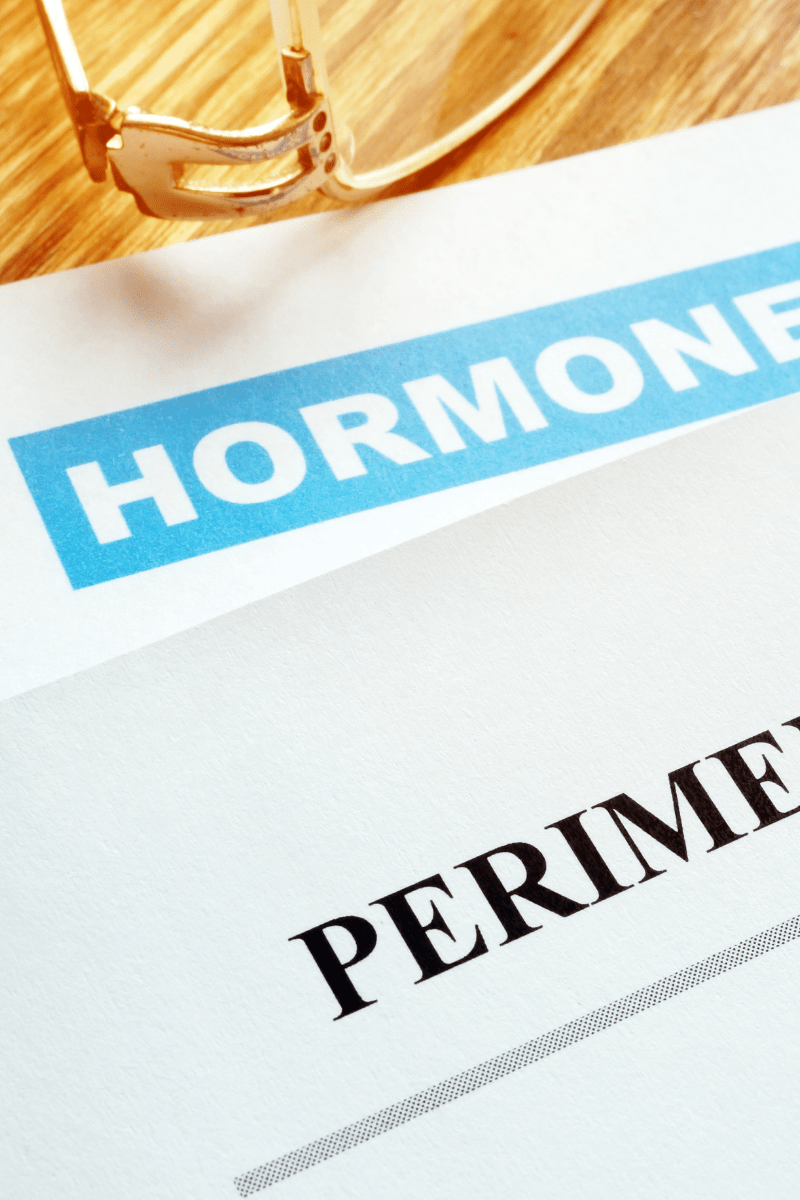
“But I’m still in my 40s! I can’t possibly be going into perimenopause . . . . surely?”
You may be thinking along these lines. You don’t have any obvious symptoms. You’ll know when you hit menopause and you’ll deal with it then. In the meantime, you might have a sense that your body is not responding quite as it did in your 20s and 30s, but, you tell yourself, you just need to work harder. Sound a bit like you?
But is 40 really too young to be in perimenopause? Read on . . .
So what is perimenopause?
Perimenopause is the biological phase we go through before we enter menopause. It lasts from 3 to 10 years with an average length of around 4 years. It usually starts in your 40s but can start in your 30s or sometimes even earlier. During perimenopause, the ovaries gradually decrease in size and begin to make less oestrogen. In the last 2 years of perimenopause the reduction of oestrogen speeds up and this is when many women experience menopausal symptoms. Perimenopause ends when your ovaries stop releasing eggs and you have gone without periods for 12 months. You are then in menopause.
So once you reach 40 years old . . .
. . . the fact is that you are likely to be starting, or already be in, perimenopause. Symptoms may not be that obvious yet. I was once one such 40-something. No real symptoms apart from not being able to lose weight as easily as I had used to. A blood test didn’t reveal perimenopause and I have since learned that, in the early stages of perimenopause, hormonal levels are constantly changing and that one test alone isn’t always enough to confirm it. Eventually, to manage my weight, I had to completely change the way I ate.
What are the symptoms of perimenopause?
The reduction of oestrogen will probably lead you to experience symptoms such as:
Changes in your menstrual flow. Probably one of the main symptoms that most women recognise. Maybe you’ve noticed your periods are lighter or heavier than normal, the number of days you bleed for, your cycle is longer one month then shorter the next month or you don’t even have a period some months.
It’s worth mentioning at this point that some menstrual irregularities are not normal and need further investigation by your doctor. These are if:
- Your periods are very heavy or have blood clots
- Your menstrual bleeding lasts 7 days longer than they normally do
- You spot or bleed between periods
- You bleed or spot after sexual intercourse
Sudden weight gain. Another common symptom that we don’t initially relate to perimenopause. We think we are just eating too much or not exercising enough. I went from being able to indulge a couple of days a week and not notice any difference in my weight to suddenly not being able to manage my weight easily. I had to change my eating completely.
Urinary urgency or leakage when coughing or sneezing. Maybe you’ve noticed that when you need to wee it’s more difficult to hold it until you are near a toilet or when you’ve finished whatever you are doing. I’m sure the expression ‘I wet myself laughing’ was said by a perimenopausal woman!
Mood swings. How many of you suddenly find yourself getting really angry or teary for no reason?
Fatigue. Maybe you have noticeably less energy than you used to? You used to be able to do a full day’s work and then go out and catch up with friends and still feel full of energy when you got home. But not so much now.
Sleep disturbances. What happened to your sleep? You remember when you would fall asleep as soon as your head hit the pillow. Now you’re tossing and turning, waking up in the middle of the night and not being able to get back to sleep.
Hot flashes. Throughout the day you go from feeling really hot – it feels like you have a radiator inside you, to feeling cold. You are constantly having to take off your layers and then put them on again regardless of the temperature of the room.
Lower sex drive. You love your partner but you are just not interested in sex anymore. This could leave you feeling anxious that it could affect your relationship.
You might even find you suffer from: vaginal dryness, discomfort during sex, breast tenderness, anxiety, brain fog, vaginal or uterine prolapse, osteopenia/osteoporosis, fluid retention (abdomen and breasts), night sweats.
What can I do to help myself during Perimenopause?
Perimenopause is more than just lower oestrogen. The balance of our progesterone and testosterone is also important. Other body systems such as the gut, adrenals, thyroid, blood sugar balance and liver play a part in how our body responds to the changes. If these systems are not functioning optimally, an unbalanced oestrogen metabolism leads to some of the symptoms above.
The right support is key . . .
. . . to enable the body to adapt to, and to move more easily through, this hormonal rollercoaster of a journey. Even if you are already in perimenopause, it is not too late to start with the right support.
This support needs to target the whole body, and your lifestyle. If you want a healthy perimenopause pay attention to the following:
- Optimum intake of key nutrients to help relieve common symptoms
- Blood sugar balance
- Stress hormones
- Thyroid health
- Gut health
- Liver detoxification
- Healthy oestrogen metabolism
- Balanced sex hormones.
- Emotional wellbeing
- Cardiovascular health
- Bone Health
- Neurological health
- Sleep
In the next few months I will be sharing more on what I’ve come to think of as my ‘Five Pillars of Wellbeing’. These are the combination of supports that helped me to support my body and soul on its perimenopausal journey. These ‘pillars’ are: Physical Coaching; Nutritional Coaching; Pilates Coaching; Breathwork and Life Coaching. I’ve gained plenty of experience and training in all of these supporting ‘pillars’, and am ready to help you with your own perimenopause and menopause.
Next month I shall be discussing how my Physical Coaching pillar supports some of our body’s key systems.
If you would like to chat about how I can support you through perimenopause or menopause, or have any questions, by all means book a call with me here.



0 Comments